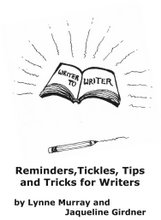 Where to get a copy
Where to get a copyThis is pretty exciting for me, so I have to share it. Holly Lisle invited writers to come up with the 33 things that we know about from real life and get exasperated to see other writers getting wrong. I picked courtroom law, because I worked for lawyers for three decades, and it's amazing how many people get their knowledge of the law from novels, TV, and movies.
I have transcribed A LOT of police interrogations and you would be surprised to find out how detectives really use the Miranda warning about incriminating oneself. Almost as important is when they don't use it and the surprising ways that suspects respond when they hear, "You have the right to remain silent..."
Some other areas I have found where writers get into "legal" trouble:
● What is the one basic rule of questioning that all trial lawyers learn?
● Can lawyers who are married to each other represent opposing sides in a lawsuit?
● A wife cannot be forced to testify against her husband--except in these circumstances....
What about a defense lawyer who wants to switch sides? What would happen if a lawyer found such horrifying information that he decided to quit in the middle of a trial--what can he do and what would he never do?
As a writer I believe that getting the small details can give a story an air of truth, while getting them wrong can irritate the reader and throw a monkey wrench into the finely tuned workings of the most beautifully constructed plot.
Fiction writers don't live by crime alone. Even in stories with no murder or criminal element, the law can loom large. Characters filing lawsuits to haul each other into court can spark major plot conflict, but in order to make a situation believable to readers it's important to know the differences between civil and criminal law.
Okay, so much for my obsession with getting back into print. I've got into e-print...tomorrow, well...
"Tomorrow is another day." Thank you Scarlett, I knew that 12-step group for "Southern Belles with Commitment Issues" would help.
I think to jump from writers' mistakes about the law directly to my obsession with the PBS Jane Austen dramatizations is a subject change that might cause a bad case of whiplash, so I'll leave that subject for next time.




No comments:
Post a Comment